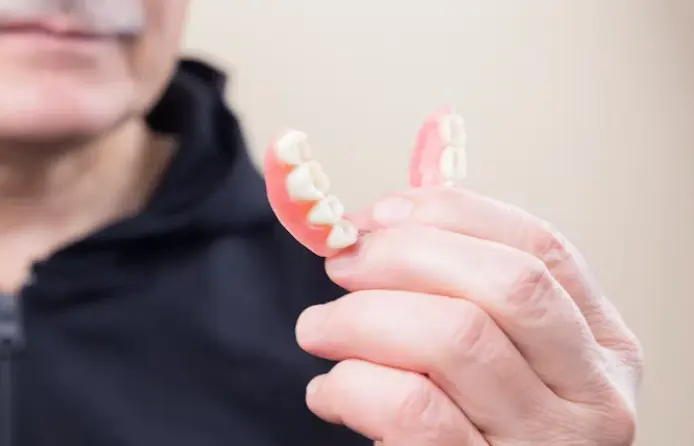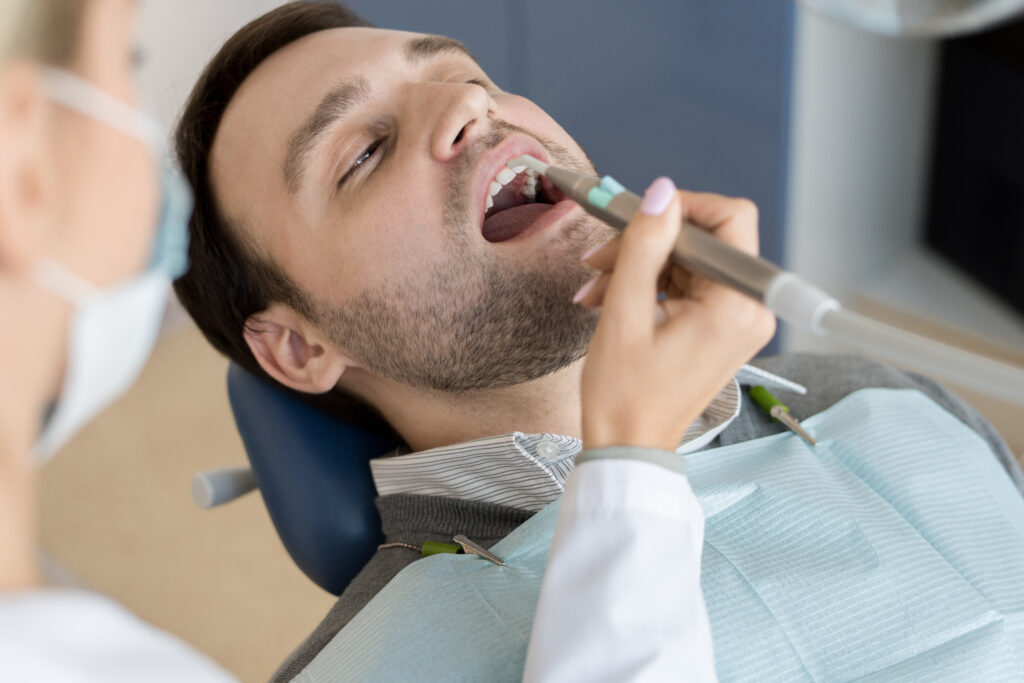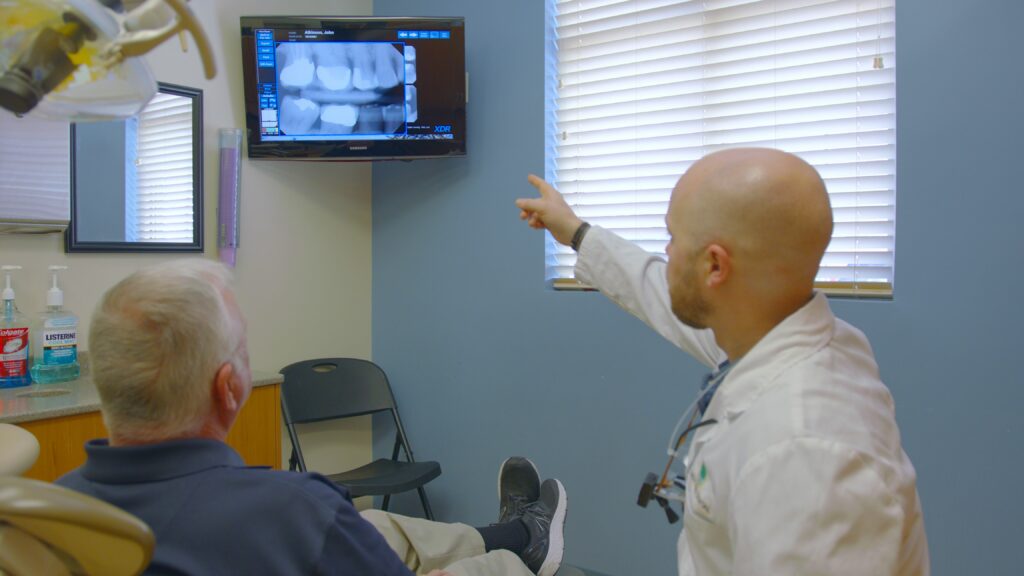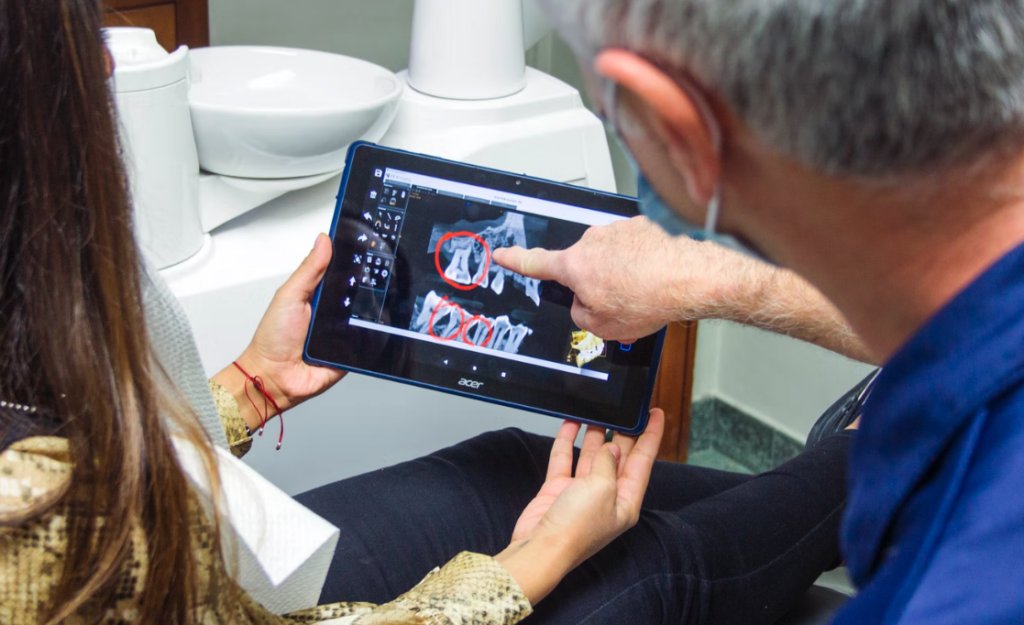Having dentures that are too big can be uncomfortable and can lead to difficulties in speaking, eating, and overall oral health. However, there are several ways to address this issue and ensure a proper fit. The first step is to visit your dentist or prosthodontist who specializes in dentures. They will examine your dentures and mouth to determine the best course of action. One common method is to make adjustments to the dentures themselves. The dentist may use a dental drill to carefully remove excess material from the base or other areas of the dentures, ensuring a better fit in your mouth. This process requires skill and precision, so it is important to consult a professional rather than attempting it yourself.
Another option to fix dentures that are too big is to use a denture adhesive. These products come in various forms such as creams, powders, or adhesive pads. By applying a small amount of adhesive to the denture base, you can create a better grip between the denture and your gums, reducing movement and discomfort. However, it’s important to note that this is a temporary solution and should not be considered a substitute for professional dental care.

How Do You Know If Your Dentures Are Too Big For Your Mouth?
Determining whether your dentures are too big for your mouth requires careful observation and awareness of any signs or symptoms. Some common indications that your dentures may be too big include sore spots or ulcers on your gums, difficulty in speaking or eating, excessive movement or slippage of the dentures, and a general feeling of discomfort or pain while wearing them. Additionally, if you notice a clicking sound when you chew or talk, it may indicate that your dentures are not fitting properly.
If you experience any of these issues, it is important to consult your dentist as soon as possible. They will be able to evaluate the fit of your dentures and make necessary adjustments to ensure a comfortable and secure fit in your mouth. Remember, wearing dentures that are too big can lead to further oral health problems, so addressing the issue promptly is crucial.
How Can I Resize My Dentures At Home?
While it is generally recommended to seek professional assistance when resizing dentures, there are a few steps you can take at home to alleviate minor fitting issues. One option is to use a denture adhesive. Applying a small amount of adhesive to the base of the dentures can create a better grip, reducing movement and discomfort.
Another method you can try at home is using a denture reline kit. These kits typically contain a soft, pliable material that can be applied to the denture base to improve the fit. However, it is important to follow the instructions carefully and consult your dentist if you are unsure about the process. Keep in mind that these home remedies should only be used as temporary measures until you can visit a dental professional for a more permanent solution.
How Do Dentists Make Dentures Fit Better?
Dentists have several techniques at their disposal to make dentures fit better and improve your comfort and oral function. One common approach is relining, which involves adding a new layer of material to the base of the denture to enhance the fit. This is done by taking an impression of your mouth and creating a mold that matches the shape of your gums. The denture is then adjusted accordingly to fit the new mold, resulting in a better-fitting denture.
Another method dentists use is rebasing. This involves creating an entirely new base for the denture while using the existing denture teeth. By doing so, the dentist can ensure a better fit and address any changes in the shape of your gums or underlying bone structure. Rebasing is often recommended when significant changes have occurred in your oral anatomy, such as gum recession or bone loss.

Can My Dentures Be Reshaped?
In some cases, dentures can be reshaped to improve their fit and comfort. However, this process should only be performed by a dental professional with experience in denture adjustments. Dentists may use a dental drill to carefully remove excess material from specific areas of the dentures, making them smaller or altering their shape to better match the contours of your mouth. This reshaping process requires precision and expertise to ensure that the dentures maintain their proper functionality.
It is important to note that not all dentures can be reshaped, especially if they are significantly oversized or if the materials used are not suitable for alteration. In such cases, your dentist may recommend alternative solutions like relining, rebasing, or getting new dentures altogether. Therefore, it is crucial to consult with your dentist to determine the best course of action based on your specific needs.
Conclusion
Dealing with dentures that are too big can be a frustrating experience, but there are solutions available to address this issue. Whether it involves visiting your dentist for professional adjustments, using temporary measures like denture adhesives, or exploring home remedies within limits, it is important to prioritize your oral health and seek appropriate care. Remember, poorly fitting dentures can lead to discomfort, difficulty eating and speaking, and potential oral health complications. By taking proactive steps and working with dental professionals, you can ensure that your dentures fit well, providing you with comfort, confidence, and an improved quality of life.







